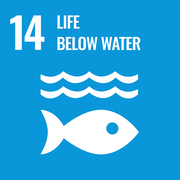
Arctic climate balance increasingly at risk
A new study coordinated by the Trophic Ecology group of the Department of Environmental Biology at Sapienza University of Rome sheds light on the relationships that link climate to the functioning of the delicate Arctic lake ecosystems, which are considered biodiversity hotspots and carbon sinks at the highest latitudes.
The highly interdisciplinary research, published in the journal Scientific Reports, was carried out in collaboration with the Institute of Polar Sciences and the Water Research Institute of the Italian National Research Council (CNR), combining elemental and stable isotope analysis of animal and plant samples with that of satellite images and the reconstruction of the hydrodynamics of 18 lakes in 3D on the Svalbard Islands.
The researchers studied the sources of nutrients in the lakes and traced their transfer through the food web, relating the observed patterns to the climatic and hydrodynamic aspects of the Arctic lakes, snow and vegetation cover and the presence of migratory species characteristic of the area. The results clarify the direct and indirect effects of these climate-related variables on species interactions and nutrient cycling (carbon and nitrogen) in these extreme environments. The evidence obtained allows the researchers to predict that the increase in temperature will lead to an increase in the nutrient load in these ecosystems, with consequences for their productivity and the rates of carbon release into the atmosphere, both of which are currently limited by the lack of nitrogen and other elements.
"The study, which is part of a broader line of research coordinated by Sapienza as part of the Programma di ricerche in Artico e del Programma nazionale di ricerche in Antartide (Arctic Research Programme and the National Antarctic Research Programme)," says Edoardo Calizza of Sapienza, "helps to better understand how rising temperatures could affect the biodiversity and functioning of polar ecosystems, and the crucial services they perform at both local and global scales, including climate regulation itself."
The multidisciplinary approach, in which biologists and geologists work together in the field and in the laboratory to study the Arctic lakes, represents an added value to the project and allows the researchers to study in detail the complex dynamics between biotic and abiotic factors that guide and constrain the circulation of nutrients even at these latitudes.
"The innovative contribution to the research on Arctic lake ecosystems is represented by the integration of satellite images and field data for the analysis of the spatial and temporal variability of snow cover in the Svalbard islands, where the CNR has many years of experience. The analysed lake system falls within the territory of the Brogger Peninsula, where the CNR's scientific base Dirigibile Italia is located."
References:
Climate-related drivers of nutrient inputs and food web structure in shallow Arctic lake ecosystems - Edoardo Calizza, Rosamaria Salvatori, David Rossi, Vittorio Pasquali, Giulio Careddu, Simona Sporta Caputi, Deborah Maccapan, Luca Santarelli, Pietro Montemurro, Loreto Rossi & Maria Letizia Costantini - Scientific Reports. DOI https://doi.org/10.1038/s41598-022-06136-4
Further Information
Edoardo Calizza
Department of Environmental Biology
edoardo.calizza@uniroma1.it

